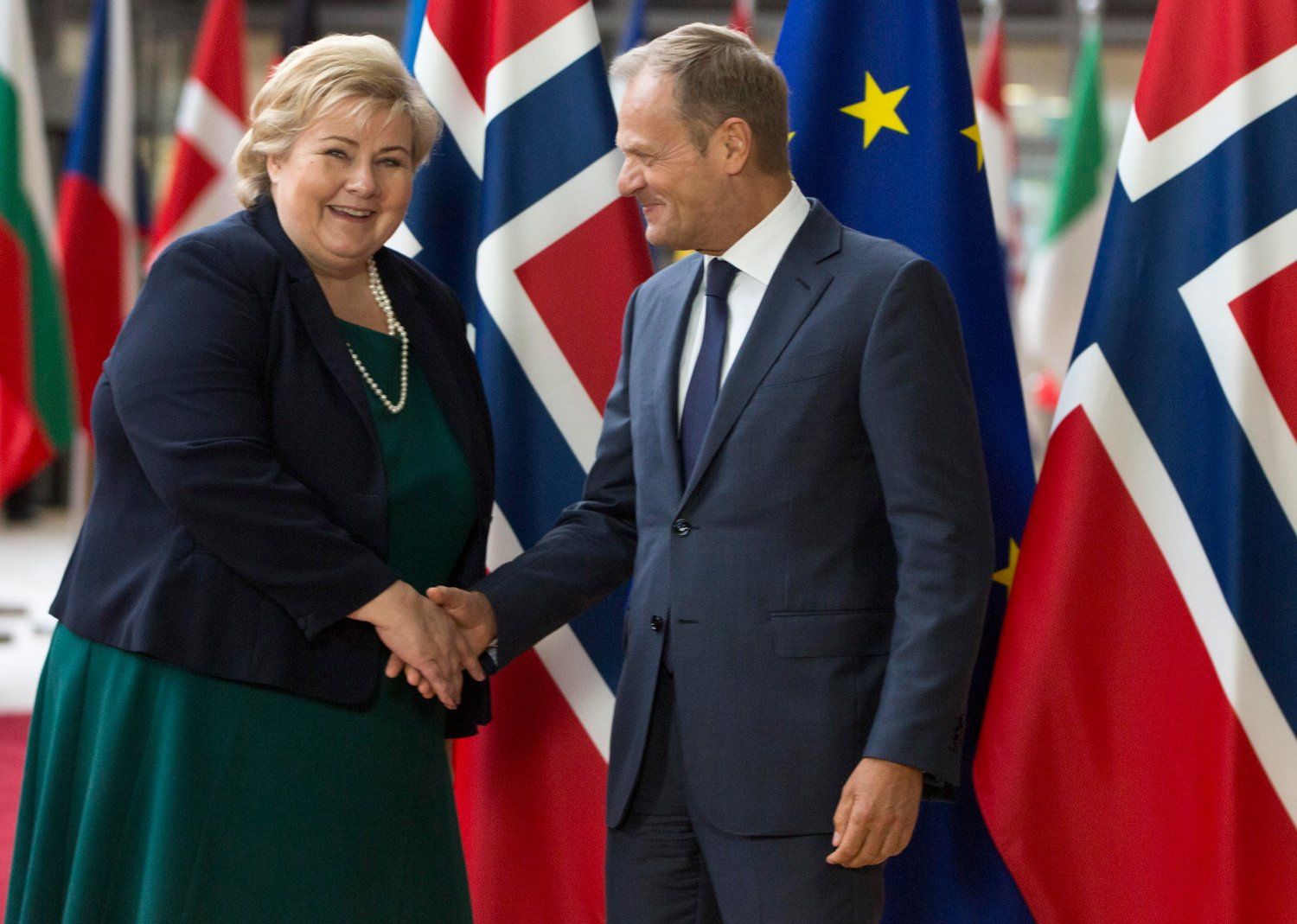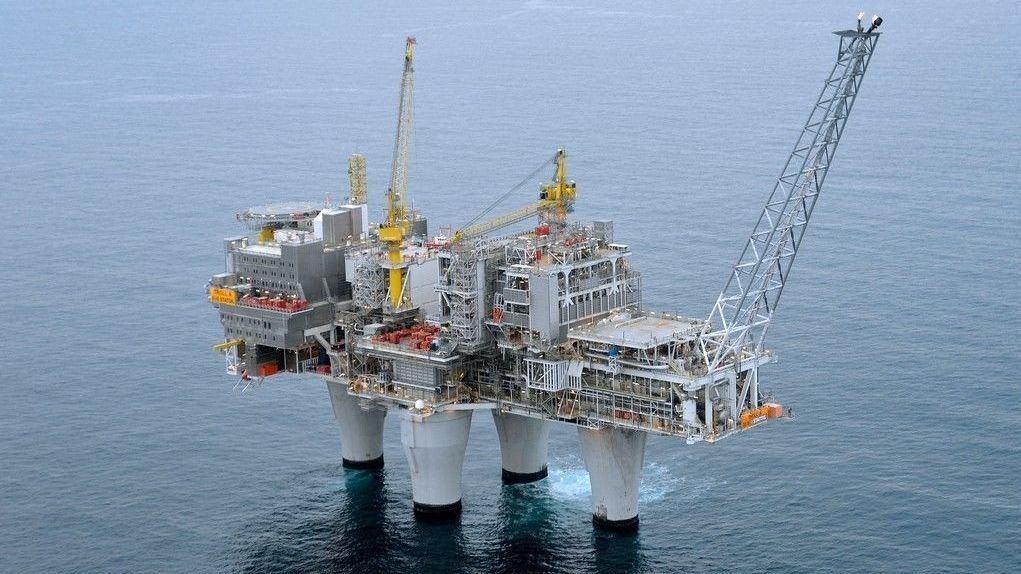SOLBERG SMISKEBREV TIL TUSK

Oslo, 11 March 2015
THE PRIME MINISTER
Dear President Tusk
Based on the very useful exchange of views we had in Brussels on 21 January and in light of the upcoming meeting of the European Council, I would like to share with you some of our initial reactions to the current discussions on energy and climate issues in the European Union.
As a fully integrated member of the internal market through the Agreement on the European Economic Area, and one of the main suppliers of energy to the EU, we wish to be an active partner in the formulation of future climate and energy policies in Europe. As such, we greatly appreciate the invitation to further develop the energy partnership between the EU and Norway.
We welcome the initiative on the Energy Union and find the comprehensive and broad approach suggested by the Commission to be most appropriate. We appreciate the strong emphasis on efficient energy markets, with adequate infrastructure and an effective legislative framework. These are preconditions for improving the security of supply and advancing the transition to a low emission economy in Europe.

Norway supports the efforts to complete a fully integrated internal energy market, with a market design aimed at providing efficient price signals. Implementation of the third energy market package will be an important first step. We are now working with the other EE A EFT A states and the Commission on incorporating the package into the EE A Agreement. I hope we will reach commonly acceptable solutions to the outstanding issues very soon.
Norway is the second largest supplier of natural gas to the EU, and will remain a stable supplier for decades. The use of gas to replace more C02-intensive energy sources may contribute to large emission reductions in the short term. Being a flexible energy source, gas can also provide balancing power in a system where the share of intermittent renewable energy is increasing. Investments in new upstream gas production and gas pipelines are capital intensive projects that depend on expectations of future market developments. This includes the market signals resulting from energy policies concerning the future role of gas in the European energy system.
HE Mr Donald Tusk President of the European Council European Council Brussels, Belgium
While folly understanding the concerns raised by countries that rely on a single source of imports, we remain highly sceptical to the notion of a joint purchasing mechanism for gas, as it is likely to reduce competition and run contrary to the desired liberalisation of the energy market.
Considerable emission reductions are needed to reach the two-degree target. It is our view that a broad range of technologies may contribute to lower emissions. Hence it is vital that all technologies are allowed to compete on a level playing field if we are to reduce emissions at the lowest cost. The EU Emissions Trading System (ETS) should be the main tool to achieve this. A strong ETS incentivises substitution of coal by gas, as well as investments in renewable energy, energy efficiency, and low emission technologies such as carbon capture and storage (CCS), in both industry and power production.

Like the EU, Norway has high ambitions to increase the production of renewable energy. We already have about 65 % renewables in our energy mix. Almost 100 % of our electricity production is from renewable resources, mainly hydropower. The electricity grid is closely connected with those of our neighbours and the level of electricity interconnection is well above 15 % of installed generation capacity. The planned interconnectors to Germany and the UK will increase Norway’s interconnection capacity by almost 50 %. In this way, we are contributing to the further integration of markets and to our common energy security.
Energy efficiency is important for improving security of supply, increasing our competitiveness and achieving emission reductions in Europe. Norway supports an ambitious energy efficiency policy that allows measures that are adapted to national circumstances and is based on consideration of cost efficiency and benefits. Further progress in this field will, in our opinion, require flexibility in the choice of policy instruments and adaptation to each country’s particular energy situation.
Development, demonstration and implementation of CCS technologies is crucial, as it is reasonable to expect that fossil fuels will continue to be used in Europe’s power generation as well as in other industrial processes for a long time to come. It is commendable that CCS is part of the Energy Union Strategy. It is our view, however, that CCS ought to be acknowledged as a means of decarbonising the economy. We appreciate the Commission’s call for an ‘enabling policy framework to increase business and investor clarity, which is needed to further develop this technology’. We urge the EU to move this important initiative forward without delay. For our part, we will continue to contribute to further work on this important topic.
Finally, I would like to reiterate Norway’s readiness to engage in a further developed energy partnership as well as an enhanced dialogue on climate policies. My Government has proposed that Norway by 2030 reduce greenhouse gas emissions by at least 40 % compared to the 1990 level, and that this emission reduction target should be fulfilled jointly with the EU on the basis of a bilateral agreement to be concluded for that purpose. We are therefore looking forward to further dialogue with the EU on this matter.
Yours sincerely
Ema Solberg
WHO and WHAT is behind it all ? : >
The bottom line is for the people to regain their original, moral principles, which have intentionally been watered out over the past generations by our press, TV, and other media owned by the Illuminati/Bilderberger Group, corrupting our morals by making misbehavior acceptable to our society. Only in this way shall we conquer this oncoming wave of evil.
Commentary:
Administrator
All articles contained in Human-Synthesis are freely available and collected from the Internet. The interpretation of the contents is left to the readers and do not necessarily represent the views of the Administrator. Disclaimer: The contents of this article are of sole responsibility of the author(s). Human-Synthesis will not be responsible for any inaccurate or incorrect statement in this article. Human-Synthesis grants permission to cross-post original Human-Synthesis articles on community internet sites as long as the text & title are not modified.
The source and the author's copyright must be displayed. For publication of Human-Synthesis articles in print or other forms including commercial internet sites. Human-Synthesis contains copyrighted material the use of which has not always been specifically authorized by the copyright owner. We are making such material available to our readers under the provisions of "fair use" in an effort to advance a better understanding of political, economic and social issues. The material on this site is distributed without profit to those who have expressed a prior interest in receiving it for research and educational purposes. If you wish to use copyrighted material for purposes other than "fair use" you must request permission from the copyright owner.